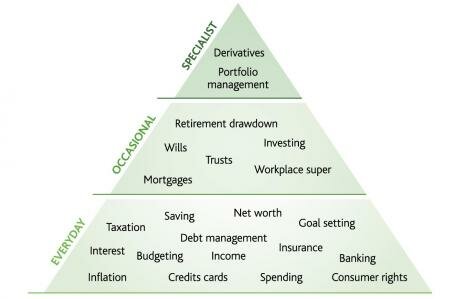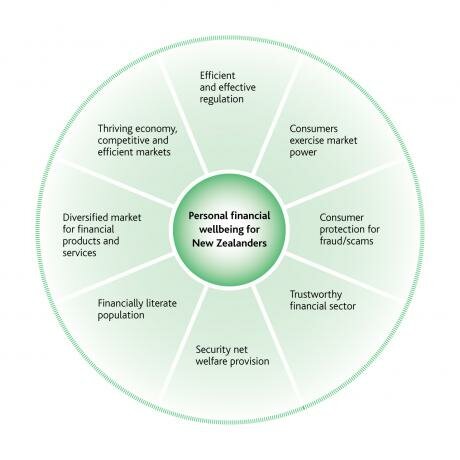About financial literacy
The National Strategy for Financial Literacy defines financial literacy and describes the contributors to personal financial wellbeing.
- What is financial literacy
- Personal financial wellbeing
- Financial education
- Financial knowledge
- Financial literacy competency framework
What is financial literacy
Financial literacy is defined as the ability to make informed judgements and make effective decisions regarding the use and management of money. It is about having financial knowledge and having the understanding, confidence and motivation to make financial judgements and decisions.
This diagram reflects the range of information and different levels of skill and knowledge that everyone needs to live in a modern economy.

Personal financial wellbeing
Financial literacy gives people choices, helps protect them from unexpected events, fraud and scams, and enables them to have a voice as consumers and citizens. At an aggregate level, personal financial wellbeing contributes to the efficiency and prosperity of the national economy.
This diagram shows the contributors to personal financial wellbeing.

Financial education
Financial education is the process by which financial consumers and investors improve their understanding of financial products and concepts and, through information, instruction and/or objective advice, develop the skills and confidence to become more aware of financial risks and opportunities, to make informed choices, to know where to go for help, and to take other effective actions to improve their financial well-being. (Source: OECD).
This diagram shows financial education as a component of financial literacy.

The key guiding principles of financial education are:
- Impartiality
- Appropriateness for the audience
- Non-judgmental
- Accessibility
- Timeliness
- Evidence-based
Financial knowledge
Financial knowledge is the understanding of a series of facts about the use and management of money. People need to know a certain level of information to be able to make informed judgements and effective decisions. Financial knowledge is an important contributor to financial literacy.
Financial literacy competency framework
The financial literacy competency framework for adults outlines the financial literacy capabilites and the knowledge and expected action or behavioural outcomes for each capability.
See the financial literacy competency framework for adults.




